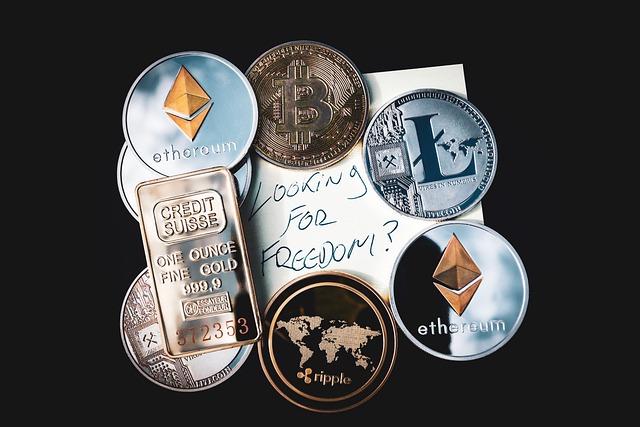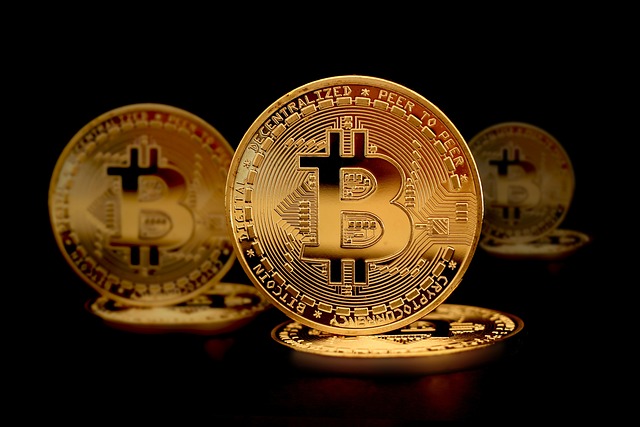DeFi Projects: Transforming Finance’s Future
DeFi Projects: Transforming Finance’s Future

I. Introduction to Decentralized Finance
Decentralized Finance, commonly known as DeFi, has emerged as a revolutionary concept in the world of finance. Unlike traditional financial systems that rely on centralized intermediaries such as banks, DeFi operates on blockchain technology, enabling individuals to engage in various financial activities directly without the need for intermediaries. This groundbreaking approach to finance has democratized the industry, empowering individuals and small businesses to access financial services in a transparent, accessible, and secure manner.
With the advent of DeFi projects, individuals can now partake in a vast array of financial activities, including lending, borrowing, staking, yield farming, and insurance, among others. These projects leverage smart contracts, which are self-executing agreements that automatically execute transactions once predetermined conditions are met. Thanks to the transparency and security provided by blockchain technology, individuals can rely on the immutability of the blockchain to trust these smart contracts, thereby eliminating the need for intermediaries and reducing costs. As a result, DeFi has unlocked new possibilities, offering greater financial inclusion for individuals who were previously excluded from traditional banking systems.
Understanding DeFi Projects and Their Role in Transforming Finance
Decentralized Finance, more commonly known as DeFi, has emerged as a groundbreaking concept in the world of finance. By harnessing the power of blockchain technology, DeFi projects aim to revolutionize traditional financial structures and democratize financial services. These projects are designed to eliminate intermediaries and create a decentralized ecosystem where individuals and small businesses can access a wide range of financial services without relying on traditional banking institutions.
At the core of DeFi projects lies the principle of transparency. Unlike traditional finance, where information often remains opaque, DeFi strives to provide open and easily accessible information to all participants. This transparency not only fosters trust between users but also allows for improved decision-making and risk assessment. Additionally, DeFi projects aim to enhance accessibility by eliminating barriers to entry and empowering individuals who may have been previously excluded from traditional financial systems. By utilizing smart contracts, DeFi projects enable peer-to-peer transactions, making financial services available to anyone with an internet connection.
Exploring the Benefits of DeFi: Empowering Individuals and Small Businesses
One of the most significant benefits of decentralized finance (DeFi) is the empowerment it offers to individuals and small businesses. Unlike traditional financial systems that are often exclusive and centralized, DeFi opens up opportunities for anyone to participate in the global financial landscape. This means that individuals and small businesses, who may have previously been excluded from accessing financial services, can now take advantage of various DeFi applications, such as lending, borrowing, and trading.
One of the key ways DeFi empowers individuals and small businesses is through increased accessibility. With DeFi, anyone with an internet connection can access and utilize financial services without the need for intermediaries or institutions. This reduces barriers to entry and allows individuals and businesses to transact and manage their finances in a more efficient and cost-effective manner. Additionally, DeFi eliminates many of the bureaucratic processes and high fees associated with traditional financial systems, further democratizing the financial landscape and giving individuals and small businesses greater control over their financial activities.
The Core Principles of DeFi: Transparency, Accessibility, and Security
Decentralized Finance (DeFi) projects are built on the core principles of transparency, accessibility, and security. These principles pave the way for a new and inclusive financial system, where individuals and small businesses can participate without the need for intermediaries.
First and foremost, transparency is a key principle in DeFi. Unlike traditional financial systems where transactions are often opaque, DeFi projects leverage blockchain technology to offer complete visibility and traceability of all transactions. This means that anyone can access and verify the records, ensuring that the system operates with integrity and accountability. By removing the need for trust in centralized institutions, DeFi advocates for a transparent financial ecosystem that promotes openness and fairness for all participants.
In addition to transparency, accessibility is another fundamental principle of DeFi. Traditional banking systems can be exclusionary, leaving many individuals and businesses without access to financial services. However, DeFi projects enable anyone with an internet connection to participate in various financial activities, such as lending, borrowing, and investing. With DeFi, individuals no longer have to rely on a brick-and-mortar bank or meet stringent eligibility criteria to access financial services. This newfound accessibility empowers individuals, especially those in underserved areas, to actively participate in the global economy and shape their financial futures.
Finally, security forms the cornerstone of DeFi projects. Building on blockchain technology, DeFi ensures that transactions and user data are secured through the use of cryptographic techniques. The decentralized nature of DeFi significantly reduces the risk of hacking or data breaches, as there is no central point of failure. Moreover, smart contracts, which are programmable agreements that automatically execute transactions when predetermined conditions are met, add an extra layer of security to DeFi projects. By eliminating the need to trust intermediaries, DeFi provides users with a greater degree of control over their assets and reduces the potential for fraud or manipulation.
In conclusion, the core principles of transparency, accessibility, and security are what underpin the transformative nature of DeFi projects. By prioritizing these principles, DeFi is reshaping the financial industry and offering individuals and businesses a more inclusive and fair financial landscape. However, as with any emerging technology, there are challenges and risks to navigate.

Smart Contracts: The Driving Force of DeFi Projects
Smart contracts are at the heart of decentralized finance (DeFi) projects. These self-executing contracts are written in code and automatically execute when pre-set conditions are met, without any need for intermediaries or third parties. This innovative technology has revolutionized the way financial transactions are conducted, eliminating the need for trust and enabling parties to transact directly with one another.
The driving force behind smart contracts is their ability to automate and streamline complex financial processes. By removing the need for middlemen, smart contracts reduce costs and increase efficiency. For example, in traditional lending, borrowers need to go through a lengthy process that involves multiple intermediaries, such as banks and credit rating agencies. With smart contracts, borrowers can access loans directly from lenders, cutting out unnecessary layers and reducing the time it takes to obtain funds. This not only benefits borrowers by offering faster access to capital, but it also empowers lenders by giving them direct control over their investments.
• Smart contracts are self-executing contracts that automatically execute when pre-set conditions are met.
• They eliminate the need for intermediaries or third parties in financial transactions.
• Smart contracts automate and streamline complex financial processes.
• By removing middlemen, smart contracts reduce costs and increase efficiency.
• Borrowers can access loans directly from lenders through smart contracts, cutting out unnecessary layers.
• Smart contracts benefit borrowers by offering faster access to capital.
• They also empower lenders by giving them direct control over their investments.
Diving into DeFi Lending and Borrowing: A Game-Changer for Traditional Banking
DeFi lending and borrowing have emerged as a revolutionary concept that challenges the traditional banking system. What sets it apart is its decentralized nature, eliminating the need for intermediaries like banks to facilitate loans and borrowing. Instead, individuals can directly lend their crypto assets to peers in need, earning interest on their holdings.
One of the key advantages of DeFi lending and borrowing is its accessibility.

DeFi Staking and Yield Farming: Maximizing Returns on Digital Assets
DeFi Staking and Yield Farming have become popular strategies for maximizing returns on digital assets in the world of decentralized finance. Staking involves locking up digital assets as collateral to support the operations of a blockchain network. By doing so, individuals can actively participate in the network and earn rewards in return. Yield Farming, on the other hand, allows users to leverage their assets by providing liquidity to various DeFi platforms, such as decentralized exchanges or lending protocols.
One of the key appeals of DeFi Staking and Yield Farming is the potential for high returns. By locking up their assets or providing liquidity, individuals can earn additional tokens or interest rates, often surpassing traditional financial systems’ returns. This has attracted both individual investors and large institutions who seek to take advantage of the emerging opportunities within the decentralized finance space. However, it is crucial to note that these strategies are not without risks and should be approached with caution. Ranging from smart contract vulnerabilities to market volatility, participants must be aware of the potential challenges and adapt their strategies accordingly. Nonetheless, DeFi Staking and Yield Farming continue to shape the financial industry by offering compelling incentives for maximizing returns on digital assets.
DeFi Insurance: Protecting Investments in the World of Decentralized Finance
In the world of decentralized finance (DeFi), where traditional banks are replaced by blockchain technology, protecting investments becomes a crucial aspect. This is where DeFi insurance steps in, providing individuals and businesses with a safety net against potential risks and vulnerabilities.

DeFi insurance works by leveraging smart contracts and blockchain technology to create trustless and transparent insurance policies. These policies can cover a wide range of risks, including smart contract vulnerabilities, hacking attacks, market manipulations, and even the loss of private keys. By utilizing blockchain technology, DeFi insurance eliminates the need for intermediaries, reducing costs and ensuring the integrity of the claims process. This innovative approach not only provides peace of mind to investors but also encourages wider adoption of DeFi projects by mitigating the risks associated with this new financial landscape.
The Challenges and Risks of DeFi Projects: Navigating the New Landscape
The world of decentralized finance (DeFi) projects is not without its challenges and risks. As individuals and businesses navigate this new landscape, it is crucial to be aware of the potential pitfalls that lie ahead. One of the main challenges is the volatility of digital assets in the DeFi ecosystem. Unlike traditional financial markets where stability is often sought after, DeFi projects can experience rapid price fluctuations and liquidity crises. This can result in significant losses for participants who are not prepared and have not adequately assessed the risks involved.
Another challenge is the complexity of DeFi projects. While they offer revolutionary solutions and opportunities, understanding the intricacies of smart contracts and decentralized applications (DApps) can be overwhelming for newcomers. As a result, there is a steep learning curve and a need for proper education and guidance. Without a solid understanding of how these projects work, individuals may fall prey to scams or make uninformed investment decisions. Additionally, potential risks such as bugs or vulnerabilities in smart contracts could expose participants to financial losses or security breaches.
Navigating the landscape of DeFi projects requires a cautious and informed approach. As with any investment, conducting thorough research, due diligence, and risk assessment is crucial. It is essential to assess the credibility and track record of the project, as well as its security measures and transparency. Moreover, diversifying one’s portfolio and not investing more than one can afford to lose are essential principles to keep in mind.
In conclusion, while DeFi projects hold immense potential for transforming the financial industry, they also come with their fair share of challenges and risks. It is imperative for participants to understand and carefully navigate this new landscape. By staying informed, conducting thorough research, and exercising caution, individuals and businesses can minimize the risks and seize the opportunities presented by decentralized finance.
The Future of Finance: How DeFi is Reshaping the Financial Industry
Decentralized Finance, or DeFi, is revolutionizing the financial industry as we know it. With its promise of transparency, accessibility, and security, DeFi projects are reshaping the way we engage with traditional banking systems. By leveraging technologies such as smart contracts, DeFi is democratizing financial services, empowering individuals and small businesses to take control of their financial future like never before.
One of the key driving forces behind DeFi projects is the concept of lending and borrowing. Traditional banking institutions have long held the power to decide who can access loans and at what interest rates. However, with DeFi lending and borrowing platforms, anyone with an internet connection can participate, effectively cutting out the need for intermediaries. This game-changing aspect of DeFi not only provides individuals and businesses with greater borrowing options, but it also allows lenders to earn passive income through interest-bearing accounts. As we move forward, it is clear that DeFi lending and borrowing will continue to disrupt and reshape the financial industry, leveling the playing field for all.
What is decentralized finance (DeFi)?
DeFi refers to a system of financial applications that operate on a decentralized network, such as blockchain, without the need for intermediaries like banks.
How are DeFi projects transforming the financial industry?
DeFi projects are revolutionizing finance by providing individuals and small businesses with greater access to financial services, eliminating the need for traditional banking institutions.
What are the benefits of DeFi?
DeFi empowers individuals and small businesses by offering transparency, accessibility, and security in financial transactions. It also allows for faster and more efficient processes.
What are the core principles of DeFi?
The core principles of DeFi include transparency, accessibility, and security. These principles ensure that users have full visibility into transactions and control over their assets.
How do smart contracts drive DeFi projects?
Smart contracts are self-executing contracts with the terms of the agreement written into code. They automate processes in DeFi projects, ensuring transparency and eliminating the need for intermediaries.
How does DeFi lending and borrowing differ from traditional banking?
DeFi lending and borrowing remove the need for a middleman, allowing individuals to lend or borrow directly from others. This creates a more inclusive and efficient lending system.
What is DeFi staking and yield farming?
DeFi staking involves locking up digital assets to support the network’s operations and earn rewards. Yield farming, on the other hand, involves maximizing returns by strategically moving assets between different platforms.
How does DeFi insurance work?
DeFi insurance protects investments by providing coverage for potential risks, such as smart contract vulnerabilities or hacking incidents. It aims to safeguard users’ assets in the decentralized finance space.
What are the challenges and risks of DeFi projects?
Some challenges of DeFi projects include scalability issues, regulatory uncertainties, and potential security vulnerabilities. Users should exercise caution and conduct thorough research before participating.
How is DeFi reshaping the financial industry?
DeFi is transforming the financial industry by democratizing access to financial services, increasing financial inclusivity, and offering new opportunities for individuals and businesses.
Todays Featured Product:
Buy, exchange and grow your crypto securely with a Ledger hardware wallet, combined with the Ledger Live app. It’s never been easier to keep your crypto safe and accessible. Buy direct from Ledger.com and get todays Special Offers Here.




